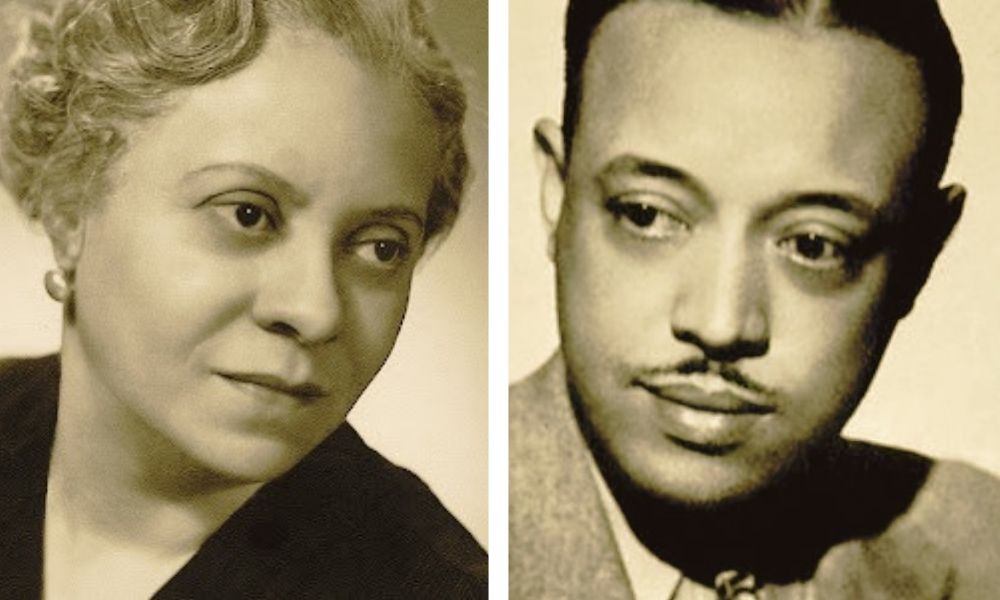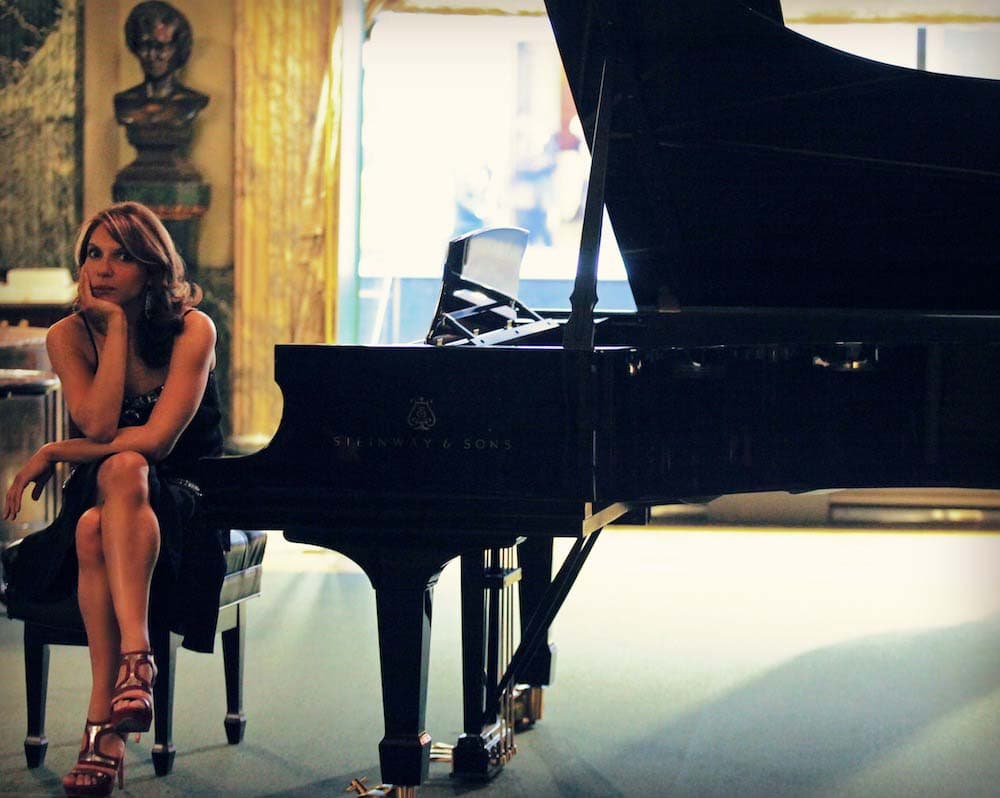Imagine if some of the music of great but underplayed American composers (like Florence Price and William Grant Still) that is now finding its way onto the programs of “classical music” organizations everywhere were presented not as special but rather as totally normal.
Washington happens to be a hub, or at least a frequent visiting spot, of artists and ensembles with long-earned credibility to bring this material into the full American mainstream without always primarily labeling it as African American or Native American or Hispanic American music or music by American women.
Take a listen to any part of two substantial works that you won’t find on any symphony orchestra concert but are for smaller, more contained forces. It will illustrate the point that these works ought to be categorized as among the best of fully American-sounding music, no matter the composer’s background nor for how long he or she was largely or entirely ignored.

For example, sometime in the 1920s, Florence Price (1887–1953) wrote a suite for string quartet titled Five Folk Songs in Counterpoint that is a magical synthesis of general American folk music, specifically African American folk song, Christian religious, and arguably European classical music forms and techniques.
It’s a suite for the four standard instruments of a string quartet that manages to group together the tunes of “My Darling Clementine,” “Drink to Me Only with Thine Eyes,” “Shortnin’ Bread,” and “Swing Low, Sweet Chariot” but with separate interpretive approaches to each movement that are arguably much more meaningful to a general audience than are the typically Italianate names of classical movements based simply on tempo markings.
And in 1935, William Grant Still (1895–1978) wrote Three Visions: A Suite for Solo Piano where it’s not hard to hear the global experiments in tonality and chord structure then current in international concert music. And yet both the general “Americana” sound of the time and the specific yearning, striving, and proto-jazzy African-American music tradition shine through this suite as well, most penetratingly in the second Vision titled “Summerland.”
Excerpts from both of these vastly underplayed works — check the lowly view counts of both of the YouTube links! — were featured in a concert in November presented by Washington Performing Arts and helmed by notable American pianist Lara Downes, who has been mainstreaming this body of work literally this entire century while everyone else is now catching up.

Starting with her 2001 album American Ballads and continuing through her 2016 album America Again and then her 2019 Holes in the Sky with entirely female composers (and including collaborations with Judy Collins among others), Lara Downes has long explored this repertoire side by side on her recordings with Charles Ives, Virgil Thomson, Leonard Bernstein and other long-recognized white American composers.
More of this theme will be included in a concert on April 10, 2022, at The Clarice Performing Arts Center at the University of Maryland, when Downes joins with percussionist Britton-René Collins and Brazilian American multi-instrumentalist and singer Clarice Assad in another one of her characteristic, revealing collaborations.
“We want this music to just flow into the culture,” Downes told me during a Zoom session from her Bay Area home studio before the November concert. “I’m really excited about the day that Florence Price gets played without any mention of, you know, all the ‘stuff’ [about her being Black and female]. It’s just getting the music into everyone’s ears.”
It’s an ongoing process that requires both continuity and informality. “We can perform this music in the concert hall, we can talk [academically] about this music,” says Downes. “But until people are just hearing it on an everyday, run-of-the-mill, hearing-it-in-your-car basis, nothing really shifts.”
“For every concert I do in a hall of 300 people, it’s also really important that there’s a track that’s on a Spotify playlist called ‘Beautiful Music for Your Cocktail Hour’ or whatever, so that these names become familiar,” she says with a good-humored chuckle. “That way, you’re not being forced to search for Florence Price. You found Florence Price naturally.”
Downes’s concert was in collaboration with the Thalea String Quartet, which joined her in — among many other works — two of four movements from Florence Price’s Piano Quintet in A Minor. One of the movements is based on a historic African American dance form called Juba that involves stomping as well as slapping and patting the arms, legs, and chest. These excerpts from the piano quintet were receiving their Washington, DC, premiere, and fascinatingly, the composition date of some of Price’s music cannot be fixed because it was found — either for the first time or in order to complete individual instrumental parts — as recently as 2009 in an abandoned house in St. Anne, Illinois, about 60 miles south of Chicago.
When you hear Price’s Quintet, feel free to analogize the Juba movement to the infinitely more familiar American music of George Gershwin. The point is that Price’s work turns out to be every bit as “American” as his, something that Gershwin almost certainly would have said himself had he not died before age 40 in 1937 and had he ever had the chance to learn of Florence Price.
Downes’s initial concert of the season for Washington Performing Arts last month also included both solo piano and string quartet collaborations with composers representing a kind of rolling-hills theme in minority-group American history. That included jazz composer-arrangers like Eubie Blake and Billy Taylor, living composers like Carlos Simon and Puerto Rican–born Angélica Negrón, and her own piano elaborations on Sam Cooke’s civil rights anthem “A Change Is Gonna Come” and Duke Ellington’s luscious and ebullient New World A-Comin’ — in its original form essentially a one-movement piano concerto that should get more play in American symphony orchestras’ main concert series.
Within all of this is an important insight by Downes about repeated mini-eras in American music history in which Black composers and performers seemed to temporarily ascend toward the heights of universal American culture, only for those eras to flame out until the next one arose for a while.

“It’s almost comforting, or at least it puts an order to things,” Downes said. Referring to her own half-Black, half-Jewish heritage, she adds with a chuckle: “I was almost brought into existence because of the civil rights movement. It was this wonderful future into which people like me could have a very different life than they would have had one generation before. And I’ve had so many conversations with my mom over the years about how that was a peak, right?
“But look what we do over and over and over again. We do a thing and then we totally forget about it and we find something else. It’s just life, it’s the cycle of being human on this planet, apparently. So for me, it makes sense, all of those [up and down cycles] in music.”
In all of this, Downes does want concert-goers and music-lovers generally to know that music by Black composers throughout much of American history has tended to reach back to themes and tunes developed by their plantation-slave ancestors. For example, at the November concert, Downes unapologetically played a short piece titled “An Ante-Bellum Sermon” from a suite called Plantation Melodies Old and New by Henry T. Burleigh, a surprisingly major African American figure in general music history. Burleigh did everything from assisting Czech composer Antonin Dvorak in New York during the 1890s, when Dvorak composed his world-famous Symphony No. 9 titled “From the New World,” to singing in both church and synagogue choirs around the northeastern U.S. before his death at age 82 in 1949.
“Americans have this intense nostalgia for our roots, and that’s the thing that I think we hear in this music,” Downes told me. “For example, we’ve got Black composers who are born in the North — their grandparents got out of slavery, well that’s good, we’re done with that. But no, they’re going back to plantation melodies, which is very raw, very recent, very dark history.
“But that is in your DNA, those are your roots. It’s that thing that keeps translating itself, no matter what step we take into whatever genre or new ideas. Those things come along with us, don’t you think?”




